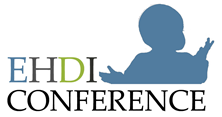| Presenter Information: |
| Presenter 1: |
Name: Brenda Schick
Affiliation:
Brenda Schick is a Professor in Speech, Language, & Hearing Sciences at the University of Colorado - Boulder. She is a former teacher of deaf children at Central Institute of the Deaf. She is a former Board Member and President of the Rocky Mountain Deaf School in Denver. She developed the Educational Interpreter Performance Assessment to evaluate interpreting skills in K-12 interpreters, now used nationally. She conducts research on spoken and sign language development in children with a hearing loss. In particular, she focuses on the interaction between language and cognition (Theory of Mind) in children with a wide range of hearing losses. She supports the work of parents, professionals, and policy makers and appreciates what a small role researchers often have in advancing quality in education for children.
|
| Presenter 2: |
Name: Mary Hartnett
Affiliation:
Mary Hartnett is Executive Director of the Commission of Deaf, DeafBlind and Hard of Hearing Minnesota's For thirty-five years she has worked with the deaf, hard of hearing, and deafblind communities in a variety of positions including director of three nonprofit organizations, educational and free lance sign language interpreter , administrator and lobbyist. Mary coordinated Minnesota's efforts to pass landmark EHDI legislation and currently serves on the State of Minnesota EDHI Advisory Committee. She received the Antonia Branca Award for Excellence in Early Hearing Detection and Intervention from the National Center for Hearing Assessment and Management and the Center for Disease Control. She uses research to advance policy change and relies upon Brenda and other advisors to sort through what we can honestly say, and what we can't.
|
|
| Abstract Information: |
| Title: |
Opinions vs Evidence: What’s the difference? What kind of data do you need to make decisions about your child’s education and influence EHDI and education policy? |
| Primary Track: |
8-Information Dissemination and Marketing
|
| Keyword(s): |
research debunk myths policy |
Abstract: |
Some people make up their own rules and data for to reinforce their opinions. It’s part of the human condition. At times wild claims are made and parents and policy makers are left sifting through for the nuggets of truth. This presentation will focus on debunking the myths surrounding research and will help parents and policy makers understand some fundamental aspects of research. What are the basics that make for reliable and valid research that provide the evidence needed to make good policy decisions and good decisions for your child? What constitutes evidence versus opinion in research? Why don’t researchers conduct research that is essential and useful for the development of policy and for informing families about treatment efficacy? What kinds of research is essential to program evaluation and who can conduct it? What are some common problems in research on children with a hearing loss and how does this affect our ability to draw conclusions? What questions should you ask about research? What do all those statistics mean – Statistics 101. What is the difference between information in a trade magazine and a peer-reviewed journal? Why should you read research results and not just the conclusions? Finally, how can you develop a network of other people, including researchers, to help you understand research results and limitations? The presenters include a research wonk and a policy wonk who bring different skills, perspectives, and understanding to evaluating research. |
| Presentation(s): |
Not Available
|
| Handouts: |
Not Available
|
|

